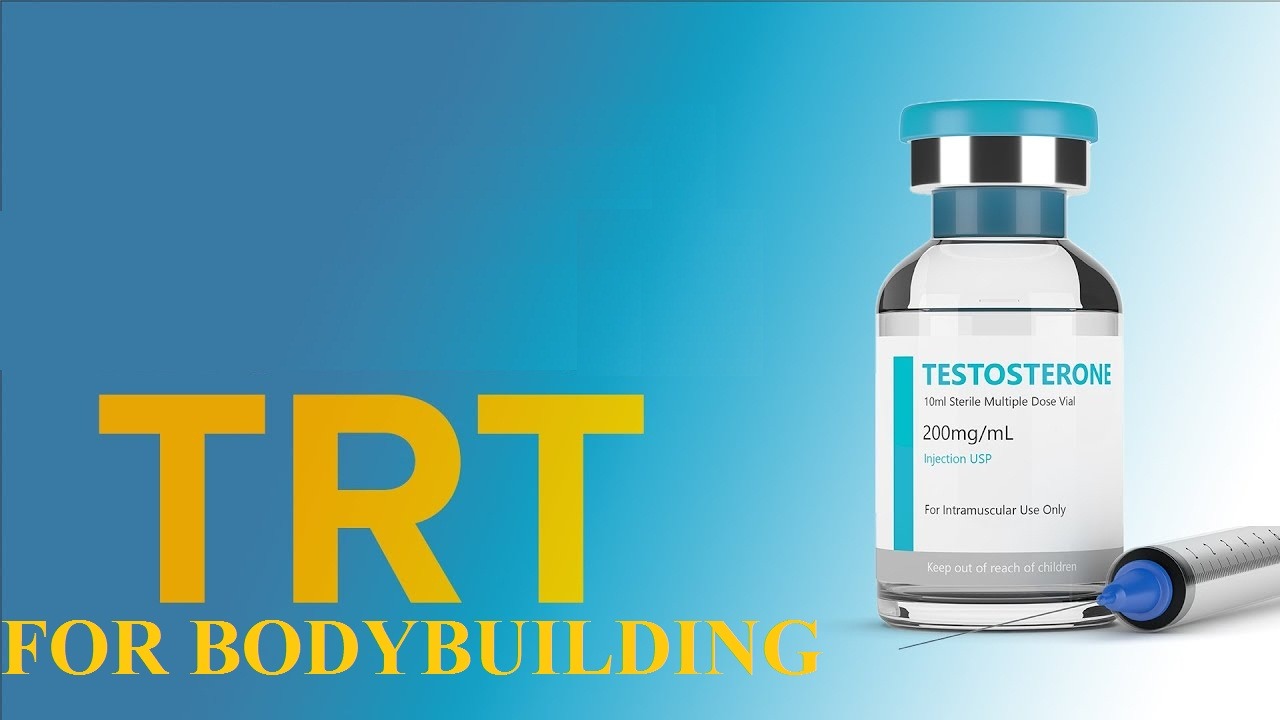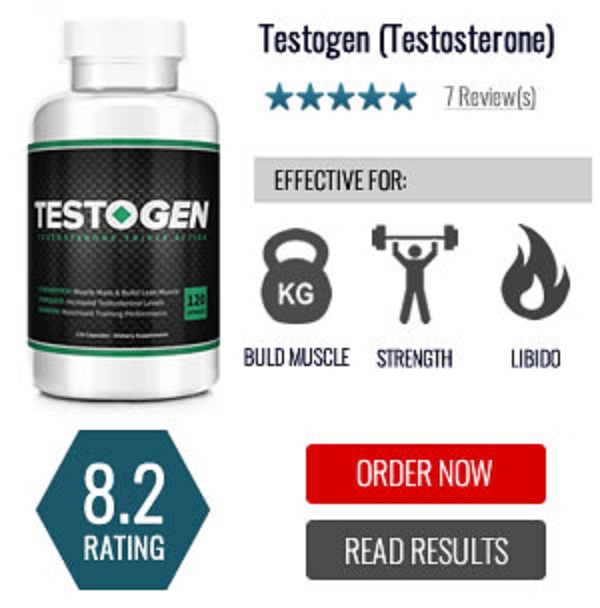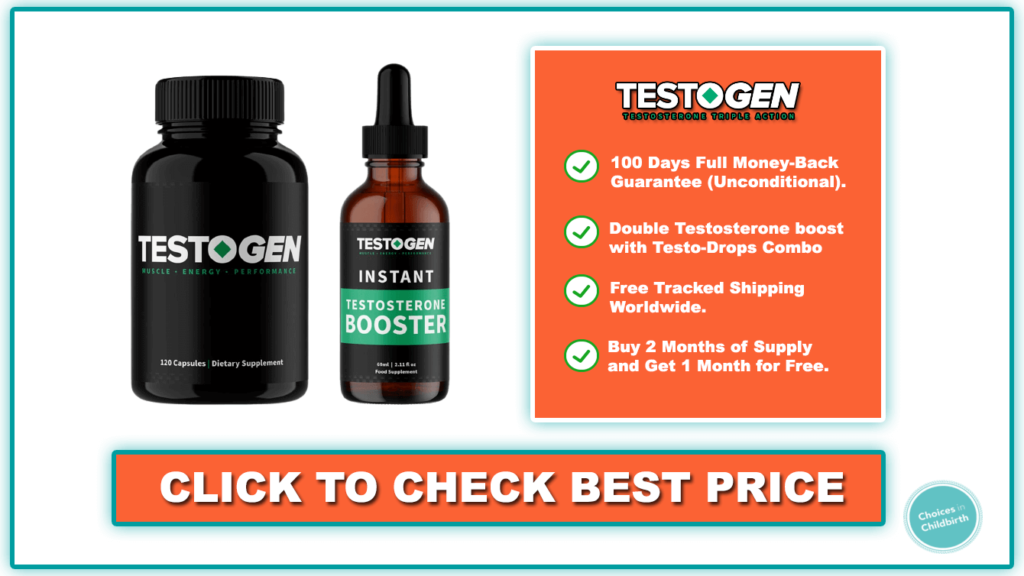TRT for Bodybuilding
Contents
- 1 TRT for Bodybuilding
- 2 Understanding the Basics of Testosterone Replacement Therapy
- 3 What is Testosterone and Its Role in the Body
- 4 The Science Behind TRT: How It Works
- 5 Determining If You’re a Candidate for TRT
- 6 The Benefits and Risks of TRT in Bodybuilding
- 7 Enhancing Muscle Mass and Strength
- 8 Potential Side Effects and How to Mitigate Them
- 9 Debunking Common Myths Surrounding TRT
- 10 TRT Treatment Protocols and Monitoring
- 11 Different Forms of Testosterone Administration
- 12 Monitoring Your Progress and Adjusting Dosages
- 13 The Importance of Medical Supervision in TRT
- 14 Legal and Ethical Considerations of TRT
- 15 Navigating the Legal Landscape of TRT
- 16 The Ethics of TRT Use in Competitive Sports
- 17 TRT Prescriptions: Why Your Doctor May Say No
- 18 Choosing the Right TRT Clinic and Ensuring Quality Treatment
- 19 Online vs. In-Person Clinics: Pros and Cons
- 20 What to Look for in a TRT Provider
- 21 Ensuring the Credibility of Your TRT Source
- 22 Conclusion
- 23 Frequently Asked Questions
Testosterone Replacement Therapy (TRT) has become a hot topic in the realm of bodybuilding, offering a potential solution for those struggling with low testosterone levels. This therapy can enhance muscle mass and strength, but it’s essential to understand its benefits, risks, and the legal and ethical considerations involved. With the rise of online TRT clinics, it’s crucial to choose a credible provider for quality treatment. This guide aims to navigate the complexities of TRT in bodybuilding, ensuring informed decisions for optimal health and performance.
Key Takeaways
- TRT is a medically supervised regimen to address low testosterone levels, beneficial for bodybuilding but requires careful consideration.
- Understanding the role of testosterone and the science behind TRT is crucial before determining candidacy for therapy.
- While TRT can enhance muscle mass and strength, it’s important to be aware of potential side effects and how to mitigate them.
- Medical supervision is essential in TRT to monitor progress, adjust dosages, and navigate the legal and ethical aspects of its use.
- Selecting the right TRT clinic is vital, weighing the pros and cons of online versus in-person clinics, and ensuring the provider’s credibility.
Understanding the Basics of Testosterone Replacement Therapy
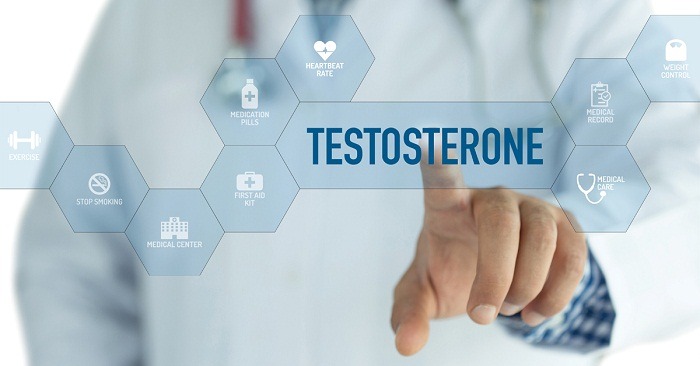
What is Testosterone and Its Role in the Body
Let’s talk about testosterone, the star player in the realm of hormones, especially for us guys. It’s like the fuel that powers various aspects of our health and well-being. Testosterone is not just about bulking up or fueling our sex drive; it’s a complex hormone that’s crucial for maintaining muscle mass, influencing mood, and overall vitality.
Testosterone levels naturally decline as we age, which can lead to a condition known as “Low T.” This is where symptoms like reduced muscle strength, low energy, and a drop in libido can kick in. It’s important to recognize these signs because they might suggest that your testosterone levels are lower than they should be.
- Muscle mass and strength
- Sex drive and fertility
- Mood and cognitive function
- Bone density
- Fat distribution
Recognizing the signs of low testosterone is the first step toward understanding whether TRT might be right for you. It’s about restoring balance, not giving you an edge in the gym or the bedroom.
The Science Behind TRT: How It Works
Diving into the science of TRT, it’s fascinating how it mimics the body’s natural processes. TRT involves administering testosterone through various methods like injections, patches, gels, or pellets. The goal is to restore testosterone levels to a normal range, which can have a profound impact on your bodybuilding journey.
One common question I get is about how long for TRT to work. It’s not an overnight miracle; it takes time for your body to adjust. Here’s a rough timeline you might expect:
- 3-6 weeks: Improved mood and energy levels
- 6-12 weeks: Better sexual function and possibly muscle gains
- 3-6 months: Noticeable increase in muscle mass and strength
Remember, these are just estimates and can vary from person to person. The importance of patience can’t be overstated; your body needs time to adapt to the new hormone levels.
While the process might seem straightforward, it’s crucial to understand that TRT is not a one-size-fits-all solution. Each individual’s response to therapy will differ, and adjustments to the treatment plan are often necessary.
Determining If You’re a Candidate for TRT
So, you’re thinking about TRT and wondering if it’s the right move for you. It’s a big decision, and it’s crucial to know if you’re a good fit for testosterone replacement therapy. Here’s the deal: TRT might be a game-changer if you’re experiencing symptoms like a decline in sex drive, trouble achieving an erection, or even low energy levels. But it’s not for everyone.
Before you jump in, consider these points:
- Are you experiencing symptoms that could be related to low testosterone, such as increased body fat or loss of facial and body hair?
- Have you had your hormone levels checked? Typically, levels below 300 ng/dl are considered indicative of hypogonadism.
- Are you ready to commit to the ongoing process that TRT entails, including regular monitoring and potential lifestyle changes?
Remember, TRT is a personal journey and should be approached with careful consideration of the benefits and risks involved.
Ultimately, the best way to determine if TRT is right for you is to consult with a healthcare professional who can provide a thorough evaluation and guide you through the decision-making process.
The Benefits and Risks of TRT in Bodybuilding

Enhancing Muscle Mass and Strength
When I first looked into how to get trt for bodybuilding, I was primarily interested in its potential to enhance muscle mass and strength. Testosterone injections for muscle building can have benefits and risks. It’s crucial to consult a healthcare professional before use, as there are different types available for bodybuilding with varying effects and dosages.
The best TRT for muscle growth isn’t just about the injections or supplements; it’s also about understanding the synergy between TRT and lifestyle choices that support natural testosterone levels.
Here’s a quick rundown of ingredients found in some of the top-rated muscle-building testosterone boosters:
- Boron: May increase free testosterone and support muscle growth.
- Magnesium: Crucial for testosterone synthesis and muscle function.
- Bioperine: Enhances absorption of active ingredients.
- Vitamin D3: Essential for healthy testosterone production, bone, and immune health.
- Vitamin K1: Essential for protein synthesis, crucial for muscle growth and repair.
Potential Side Effects and How to Mitigate Them
When I started looking into TRT for bodybuilding, I knew I had to be aware of the potential side effects. Sexual dysfunction is one of the more concerning issues that can arise, including problems like erectile dysfunction and decreased libido. It’s not just about the gains; it’s about staying healthy and functional in all aspects of life.
To mitigate these risks, I’ve learned that it’s crucial to monitor my health closely and maintain open communication with my healthcare provider. Here’s a quick list of steps I take to stay on top of things:
- Regularly check in with my doctor for medical advice on side effects.
- Report any unusual or persistent issues to the FDA or my healthcare professional.
- Follow my doctor’s recommendations to prevent or reduce side effects, which might include adjusting my TRT dosage or taking additional medications.
Remember, some side effects may not need immediate medical attention and could resolve as your body adjusts to the therapy. But always keep your health in the forefront.
It’s also worth noting that while natural testosterone boosters may seem like a safer alternative, they can still cause side effects such as headaches, upset stomach, and changes in blood pressure or cholesterol levels. So, whether it’s TRT or supplements, staying informed and proactive is key to a successful and healthy bodybuilding journey.
Debunking Common Myths Surrounding TRT
Let’s cut through the noise and tackle some of the myths you might have heard about Testosterone Replacement Therapy (TRT). Myth-busting is crucial, especially when misinformation can deter those who might genuinely benefit from TRT.
One of the most persistent myths is that TRT can lead to heart issues. However, research has debunked this myth, yet it persists in medical practice. It’s important to look at the evidence and consult with healthcare professionals to understand the real risks and benefits.
Another common misconception is that TRT will shrink your testicles or cause fertility issues. This is simply not true. TRT, when administered correctly, does not cause such side effects. If you’re concerned about fertility, it’s essential to discuss this with your doctor, as they can provide guidance tailored to your situation.
Remember, TRT is a medical treatment with specific indications, not a one-size-fits-all solution. It’s about finding balance and enhancing your quality of life under medical supervision.
Lastly, let’s address the belief that TRT is only for enhancing sexual performance or bodybuilding. While it’s true that TRT can help with muscle mass and energy levels, its primary purpose is to treat low testosterone levels due to age or medical conditions. Always approach TRT with a clear understanding of your health goals and in consultation with a healthcare provider.
TRT Treatment Protocols and Monitoring
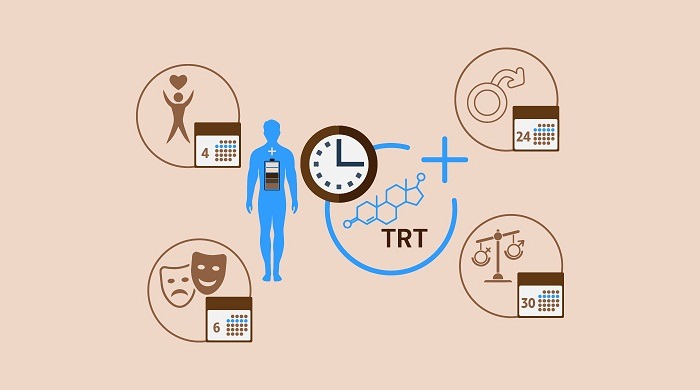
Different Forms of Testosterone Administration
When I started looking into TRT, I realized there’s a variety of ways to get testosterone into my system. Injectable testosterone is one common method, using a longer ester to reduce how often I need to jab myself. Then there are transdermal patches, which are pretty straightforward; you just slap a patch on your skin and let it do its thing.
Another option is SERMs, like Nolvadex, Clomid, and Enclomiphene, which work by boosting LH and FSH to kickstart my Leydig cells. And let’s not forget about HCG, which mimics LH to get those cells pumping out testosterone.
While these are the main forms, it’s crucial to remember that each method has its pros and cons, and what works for one person might not be the best for another.
Lastly, there’s the medication route with SERMs and/or HCG, which can be a temporary fix or a longer-term solution, depending on the individual case. It’s all about finding the right balance and what fits into my lifestyle.
Monitoring Your Progress and Adjusting Dosages
Once you’ve started TRT, it’s crucial to keep a close eye on how your body is responding. Regular blood tests are a must to ensure your testosterone levels are within the optimal range. But it’s not just about the numbers; you need to pay attention to how you feel. Are your symptoms improving? Are you experiencing any side effects?
Here’s a simple checklist to help you monitor your progress:
- Schedule regular lab tests as recommended by your doctor
- Keep a journal of your symptoms and any side effects
- Discuss any concerns with your TRT provider promptly
Remember, TRT is a marathon, not a sprint. Patience and careful monitoring are key to finding the right balance for your body.
Adjusting your dosage is a delicate process. If your levels are too low, you might not see the desired benefits. If they’re too high, you risk side effects. It’s a fine line to walk, and that’s why medical supervision is non-negotiable. Your provider should be as invested in your health as you are, ensuring your treatment is tailored to your unique needs.
The Importance of Medical Supervision in TRT
I’ve learned that diving into TRT without a doctor in your corner is like trying to navigate a maze blindfolded. Medical supervision is crucial to ensure the therapy is safe and tailored to your needs. It’s not just about getting the right dose; it’s about ongoing monitoring and adjustments based on how your body responds.
It’s easy to get swayed by the promise of quick gains, but remember, TRT is a medical treatment, not a shortcut to bodybuilding glory. Here’s a quick rundown of why you need a medical pro on your team:
- Expert Guidance: A healthcare professional can determine the appropriate therapy for your unique situation.
- Safety Monitoring: Regular check-ups help catch any potential side effects early on.
- Dosage Adjustments: Your body’s response to TRT can change over time, necessitating dosage tweaks.
Remember, TRT is not a one-size-fits-all solution. It requires a personalized approach to maximize benefits and minimize risks.
Lastly, don’t overlook the legal and ethical aspects. Without proper medical supervision, you could be walking a fine line, risking not just your health but also your reputation, especially if you’re competing. Stick to the science and the law, and you’ll be on the right track.
Legal and Ethical Considerations of TRT
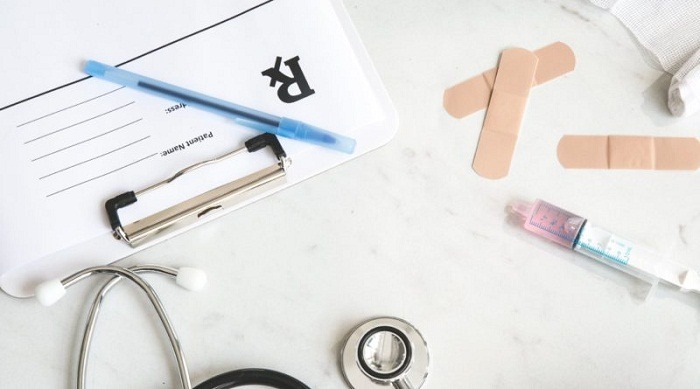
When I started looking into testosterone replacement therapy (TRT) for bodybuilding, I quickly realized that the legal aspect is as complex as the treatment itself. Navigating the legalities of TRT is crucial; it’s not just about finding a source, but ensuring that the source is legitimate and that I’m complying with the laws of my country.
In some places, TRT is perfectly legal when prescribed by a doctor, but it’s a whole different ball game when you’re trying to source it online or from less reputable providers. I’ve seen estates where the legality of TRT is a gray area, and this can lead to potential legal issues if not handled correctly. Here’s a quick rundown of what I’ve learned:
- Always verify the legal status of TRT in your location.
- Ensure any online provider complies with your country’s regulatory standards.
- Be wary of self-diagnosis and the temptation to self-prescribe.
TRT optimizes therapeutic outcomes by tailoring replacement doses based on testosterone half-life. Esters like enanthate, cypionate, and propionate offer varied release profiles. Individualized dosages and monitoring enhance TRT efficacy.
Remember, while the goal is to enhance performance and muscle growth, it’s not worth risking legal trouble or your health by cutting corners.
The Ethics of TRT Use in Competitive Sports
When I dive into the world of competitive sports, the use of Testosterone Replacement Therapy (TRT) becomes a hotly debated ethical issue. Is it fair play or foul? It’s a question that doesn’t have a straightforward answer. On one hand, TRT can level the playing field for athletes who have a medical need for it. On the other, it opens up a can of worms about performance enhancement and where we draw the line.
- Medical need vs. Performance enhancement: The distinction between using TRT to treat a legitimate medical condition and using it to gain an unfair advantage is crucial.
- Regulatory oversight: Sports organizations have varying rules regarding TRT use, and staying within these guidelines is essential for athletes.
- Ethical considerations: The spirit of sport is rooted in fair competition. Using TRT to gain an edge goes against this principle and can undermine the integrity of the sport.
The ethical dilemma of TRT in sports is not just about legality; it’s about preserving the essence of competition and respecting the hard work of all athletes.
The page discusses training recommendations, legal status, and ethical dilemmas of anabolic steroids. It also mentions alternative options to steroid cycles, which could be a safer route for those looking to enhance their performance without stepping into morally grey areas.
TRT Prescriptions: Why Your Doctor May Say No
I’ve been down the rabbit hole of online forums and TRT clinic websites, and I know how confusing it can be. You might think getting a prescription for TRT should be straightforward once a deficiency is diagnosed. However, it’s not always that simple. Doctors can be hesitant to prescribe TRT, and there are a few reasons why.
One major concern for physicians is the potential link between TRT and prostate cancer. Despite the lack of conclusive evidence, the fear persists, and it can influence a doctor’s decision. Additionally, the medical community is still overcoming current misconceptions about testosterone supplements.
Here’s a quick rundown of why your doctor might be reluctant:
- Concerns about the long-term health risks, such as cardiovascular issues or prostate cancer.
- Uncertainty about the benefits versus the risks for each patient.
- The possibility of alternative treatments that don’t involve testosterone supplementation.
- Legal and ethical considerations, especially if you’re an athlete.
It’s important to have an open and honest conversation with your healthcare provider about TRT. They need to weigh the potential benefits against the risks, and this can take time.
If you’re facing resistance from your doctor, don’t lose hope. Some clinics specialize in TRT, and some even offer insurance possibilities, though they’re in the minority. It’s crucial to ensure you’re getting safe and effective treatment, so always seek a credible source.
Choosing the Right TRT Clinic and Ensuring Quality Treatment
Online vs. In-Person Clinics: Pros and Cons
When I started looking into TRT, I quickly realized that choosing between an online clinic and an in-person one isn’t just about convenience; it’s about weighing the pros and cons to find what’s best for my health and lifestyle. Online clinics offer unparalleled convenience and accessibility, especially for those of us with jam-packed schedules or living in remote areas. The process is straightforward: from consultation to getting your TRT delivered, it’s all done from the comfort of your home.
The privacy offered by online platforms is a huge plus. It’s discreet, avoiding any potential judgment or stigma that might come with visiting a clinic in person.
However, it’s not all smooth sailing. Online platforms can sometimes lack the personalized touch of face-to-face medical assessments, which could lead to generalized treatment recommendations. Communication is another potential pitfall; misunderstandings are more likely without the nuance of in-person conversations. And while online monitoring exists, it might not be as comprehensive as what you’d get with regular check-ups.
Here’s a quick rundown of what I’ve learned:
- Convenience: No need to travel, saving time and hassle.
- Privacy: Treatment without societal judgment.
- Cost: Often more competitive, with transparent patient reviews.
- Personalization: Potential challenges in getting a treatment tailored to your specific needs.
- Communication: Risks of misinterpretation without face-to-face interaction.
Remember, it’s crucial to ensure the credibility of your TRT source. The web is rife with scams and quality concerns, so doing your homework is key to avoiding counterfeit or harmful products.
What to Look for in a TRT Provider
When I’m on the hunt for a TRT clinic, I keep my eyes peeled for a few key things. First off, I want to know they’re not just about the sales pitch; they need to be well-versed in Testosterone Replacement Therapy (TRT), its benefits, side effects, and costs. They must understand that TRT is more than just a quick fix; it’s about managing my hormone levels responsibly.
Here’s a quick checklist I run through:
- Comprehensive understanding of TRT and related health implications
- Transparent pricing without hidden fees
- A variety of treatment options to suit individual needs
- Regular monitoring and adaptable treatment plans
- Positive reviews and a strong reputation in the community
Remember, the goal is to find a provider that offers a personalized approach, ensuring that the treatment aligns with my health goals and lifestyle.
Lastly, I make sure they’re upfront about whether they accept insurance like FSA and HSA cards. It’s all about finding that balance between quality care and financial feasibility. After all, I’m looking for a partner in this journey, not just a service.
Ensuring the Credibility of Your TRT Source
When I’m looking into TRT, the last thing I want is to fall for a scam or end up with a bogus product. That’s why I always make sure the website page discusses various studies on testosterone treatment, including its effects on conditions like cardiovascular diseases and prostate cancer. It’s a good sign when there’s a wealth of information available, especially when it’s backed by references at the end of each article.
Authenticity is key, and I look for signs of expertise, like the involvement of professionals such as Daniel Louwrens BSc PT. Their experience in biohacking-related topics gives me confidence in their advice. Here’s a quick checklist I use to vet a TRT source:
- Comprehensive resources and expertise
- Transparent reviews and user feedback
- Legal and regulatory compliance
- Privacy policies to protect my data
Remember, the ease of online access shouldn’t tempt you to self-diagnose or misuse TRT. Always seek proper medical guidance.
Lastly, I check for transparent reviews and user feedback. It’s reassuring to see other people’s experiences, especially when they’re positive. But I also keep an eye out for any red flags, like a lack of privacy policies or issues with regulatory compliance.
Conclusion
Navigating the world of Testosterone Replacement Therapy (TRT) for bodybuilding can be complex, but with the right information and guidance, it can be a valuable tool for those looking to enhance muscle mass, energy levels, and overall performance. It’s crucial to understand the difference between medical and non-medical uses of TRT, dispel common myths, and recognize the importance of a medically supervised regimen. As TRT becomes more accessible through affordable options and online clinics, it’s important to rely on credible sources and consult with healthcare professionals to ensure safe and effective use. Remember, while TRT may offer benefits for bodybuilding, it should be approached with caution and responsibility.
Frequently Asked Questions
What exactly is Testosterone Replacement Therapy (TRT)?
TRT is a medically supervised regimen designed to supplement or replace testosterone in men whose levels are low due to age or medical conditions. It can help alleviate symptoms like reduced energy and decreased muscle mass and is sometimes used by bodybuilders to enhance muscle mass and strength.
Is TRT only for individuals with medical conditions?
While TRT is primarily prescribed for treating low testosterone levels due to medical conditions or aging, it can also be used for non-medical reasons such as improving sexual performance, increasing energy levels, and assisting with bodybuilding goals.
What are some common myths about TRT?
A common myth is that TRT can shrink testosterone levels when, in reality, it aims to increase them. It’s important to distinguish between facts and misconceptions by consulting with medical professionals and reviewing credible sources.
How is testosterone administered in TRT?
Testosterone can be administered through various forms such as injections, patches, gels, or pellets, with each method having its own set of advantages and considerations. The choice of administration is often based on personal preference, convenience, and medical advice.
Why might a doctor refuse to prescribe TRT?
A doctor may refuse to prescribe TRT if they determine that the risks outweigh the benefits for the patient if the patient does not have a clear medical need, or if there are concerns about potential abuse, especially in the context of competitive sports.
How can I ensure the credibility of my TRT source?
To ensure the credibility of your TRT source, choose a clinic or provider that is reputable and medically supervised. Look for providers that adhere to strict editorial guidelines, provide references, and have a transparent process for fact-checking and ensuring the quality of their treatment.
